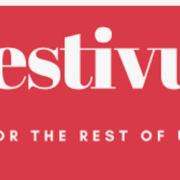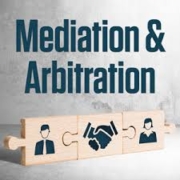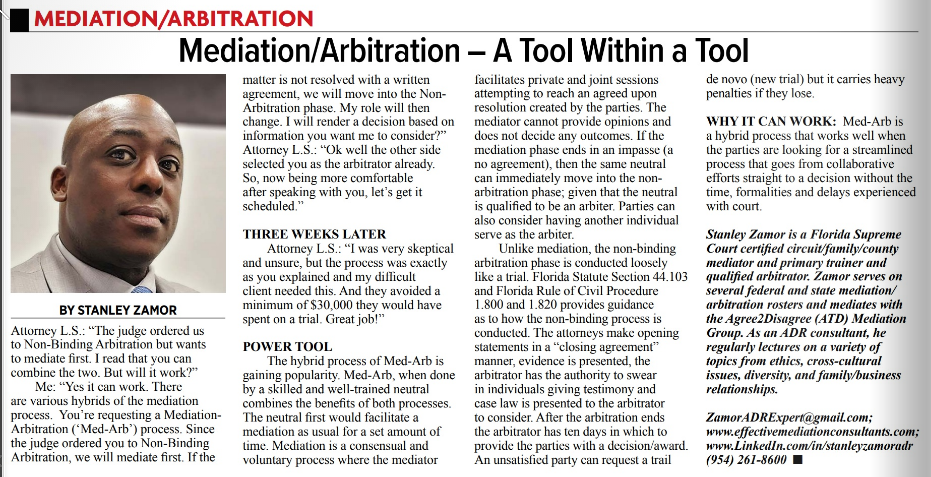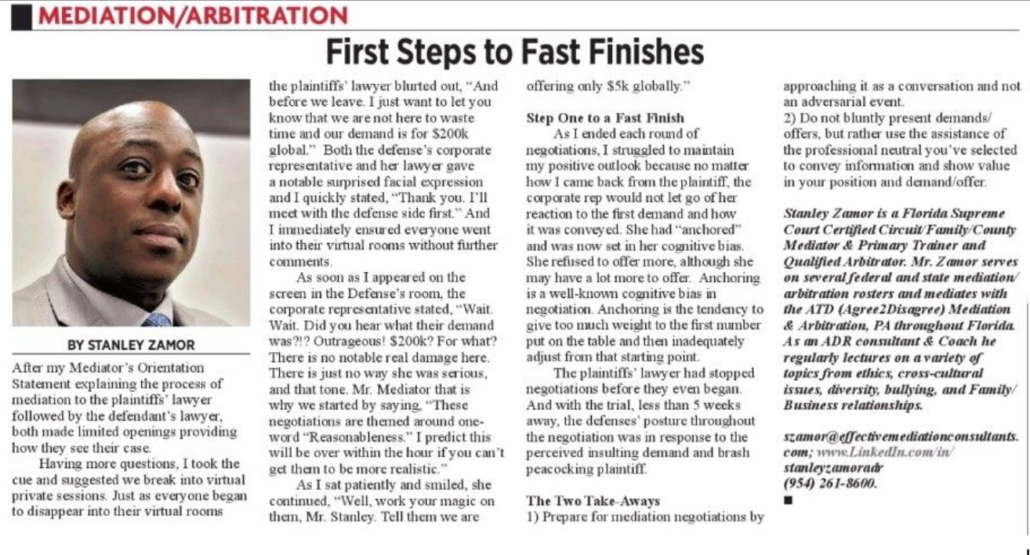2022! A Mediator’s Holiday Wish
By Stanley Zamor
“Happy Holidays”; “Merry Christmas”; “Happy Hanukkah”; “Happy Kwanzaa”; “Happy Festivus!”
“My children’s father still refuses to pay his support. So as a result, even though I’m working more hours, we’re being evicted…” – Parenting Case
“…The anniversary of our mother’s death is Christmas Eve. And still my siblings refuse to sign the documents in order to satisfy the bank’s requirements in order for us to resolve numerous obligations left unresolved. This is becoming a dire situation…None of us are communicating and our families are being torn apart” -Probate/Enforcement of Sale/Liens.

“Mr. Zamor. Forgive my emotion and my tears. But I have not seen my children in 4 months. I missed Thanksgiving with them, a birthday and various school events, and now it’s evident I will not be seeing them for Christmas. This is not justice. How come no one is helping? The judge, the police, no one seems to be helping…Nothing but postponements and more time/money lost…”
– Divorce/Family Case
The foregoing are a few of the many statements, sentiments expressed to me by disputants during mediations that occurred during or leading up to the holiday season. Although this is the time of the year where families get together, and most enjoy gifts and seasonal good wishes. That is not the reality for many, many others. For many this is the worst time of the year. According to research the holiday season Is when many families experience the highest levels of stress, interpersonal conflicts and mental health concerns that inhibit the joy and harmony the holiday season promotes.
Neutrals can play a profound role during this time. Although we are not in a mental health or counseling role, as we help construct solutions to disputes that are the source of deep emotional stress, we can encourage better communication and mitigate that stress.
MY WISH
My wish for this holiday season is that if you are a professional neutral who deals with individuals or families, during the holiday season you will recognize the important role you play. Go beyond the mundane and provide the disputants with what is the “Promise of Mediation”. Use the best conflict resolution/management skills and techniques to empower the disputants and allow for self-determination. Offer disputants encouragement and suggestions to reduce the barriers to communication. Doing so may not provide the perfect solutions to their conflict, but it will demonstrate a professional who is dutifully engaged and dedicated to helping creating solutions to complex matters.
The following are 10 suggestions to a better holiday season:
- Set/Be Aware of Expectations (what you expect from others and your time with others),
- Stay Open to Your Needs and the Needs of Others
- Set Your Boundaries and Create Realistic Boundaries
- Be Mindful
- Approach Every Conversation and Interaction with Good Intentions
- Take Time for Yourself when Necessary
- Breathe, Breathe, Breathe
- Do Not Enter or Contribute to Conversations that YOU KNOW LEAD TO TIGGERS
- Know/Recognize Your Own Triggers
- Speak For Yourself, Not for Others
Stanley Zamor is a Florida Supreme Court Certified Circuit/Family/County Mediator & Primary Trainer and Qualified Arbitrator. Mr. Zamor serves on several federal and state mediation/arbitration rosters and mediates with the Agree2Disagree (ATD) Mediation Group. He is also appointed to serve on the Florida Bar Grievance Committee and serves other National organizations as a facilitator and lecturer. As a ADR & Conflict consultant/professional he regularly lectures on a variety of topics from ethics, cross-cultural issues, diversity, and Family/Business relationships. ZamorADRExpert@gmail.com ; www.effectivemediationconsultants.com; www.agree2disagree.com; www.LinkedIn.com/in/stanleyzamoradr. (954) 261-8600
A HOLIDAY OF ALTERNATIVES: “HAPPY FESTIVUS… FOR THE REST of US”
Is Festivus a real holiday? Some say No. It is a holiday celebrated to be fun and whacky. The Festivus holiday began when writer Daniel O’Keefe of the 90’s sitcom Seinfeld introduced it when one of the character’s fathers explained how as he was engaged in a physical altercation at a department store attempting to purchase an exclusive doll for his child. He was mad and disappointed in his behavior of having to fight for a doll in order to get a gift for his son. He was then enlightened and created an alternative to what stress and pressure the holiday season brings.
Although the holiday was part of a sitcom episode, Festivus is a now a secular holiday, said to be celebrated on December 23rd. It is meant as an alternative to the pressures and commercialization of the Christmas season. Those who chose to be part of the holiday take apart in all or portions of the holiday which include 1) the Festivus Pole; 2) the Airing of Grievances; 3) Festivus Dinner; 4) The Feats of Strength. Of the various portions of the Festivus holiday, the airing of grievances offers healthier opportunities to voice disappointments in a transparent safe space, offering a chance to heal from those pains experienced during the year. Other holidays seem to suggest forgetting and forgiving other’s transgressions, which it far too difficult and divine for most to do. At a time where we promote “self-love”; “self-care”; Mindfulness… Knowing and speaking your truth; Festivus offers something that the other do not. So, while Christmas and other holidays reign as the foremost celebrated holidays, Festivus is gaining popularity as an alternative to fully respond, address and heal from emotional discourse by not disguising or shying away from it. So Happy Festivus and I wish all of you the best!













